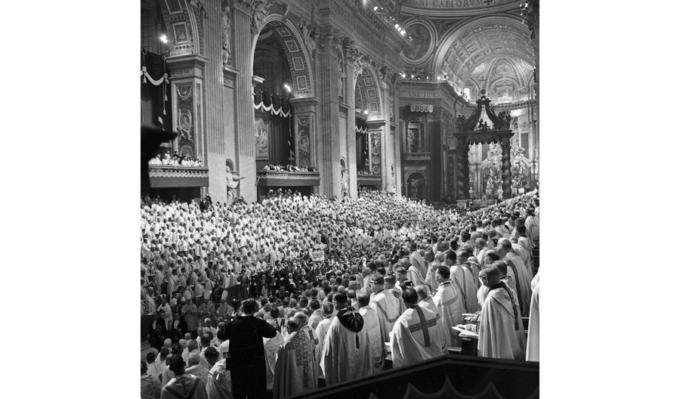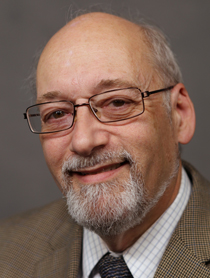
Culture
To help societies devastated by two world wars and grave ideological conflicts, where many had come to doubt the purpose and meaning of human life, the church would reaffirm its own central commitments, showing modern men and women that this purpose and meaning are found in Jesus Christ.

Doerflinger
This October was the 60th anniversary of the first session of the Second Vatican Council, a landmark event in the Catholic Church. Yet the council's legacy remains a matter of confusion and controversy today.
Divisions over this legacy began as soon as it ended in 1965. Some theologians emphasized the idea of "aggiornamento," "updating" the church to come to terms with the modern world, and founded a journal called "Concilium" to elaborate on this theme.
Others emphasized the theme of "ressourcement," a "return to the sources" in Scripture and the early church to revitalize Catholics' evangelizing mission, and they founded the journal "Communio."
Interestingly, both groups included experts who had advised bishops preparing the council documents.
St. John XXIII made his wishes clear in his address at the beginning of the council: The church must preserve and defend "the sacred deposit of Christian doctrine" handed down through the centuries, by promoting it "more effectively" to the modern world.
Updating the church's way of expressing itself was intended to promote the whole of that doctrine "in all its purity, undiluted, undistorted."
To help societies devastated by two world wars and grave ideological conflicts, where many had come to doubt the purpose and meaning of human life, the church would reaffirm its own central commitments, showing modern men and women that this purpose and meaning are found in Jesus Christ.
The council's documents reflected that intention, modifying the church's tone in approaching the modern world from one of fear and defensiveness to one of sympathetic outreach.
Reading of Scripture was encouraged, and the tools of biblical scholarship accepted unless they deny God's role in inspiring the sacred texts. Those professing other religions or none were treated less as hopelessly immersed in error and more as seekers of truth. Social arrangements guaranteeing religious freedom for all were accepted, recognizing that faith must be free from outside coercion to be authentic.
The documents emphasized a "universal call to holiness," urging the laity to go out and transform the world once they are fed on the word of God and Christ's presence in the Eucharist.
This was the "letter" of the council's texts. Some Catholics, feeling constrained by the church's disciplines and attitudes prior to 1965, wanted to go much further, invoking the "spirit of Vatican II" to foster radical change in liturgy, doctrine and morality.
In 1977, for example, a committee of the Catholic Theological Society of America issued the book "Human Sexuality: New Directions in American Catholic Thought," replacing long-standing Christian moral norms with the amorphous standard that sexual activity should promote "creative growth toward integration."
During this period, thousands of priests and religious abandoned their vows. It's interesting that the more "progressive" religious orders ended up struggling to survive, while some more traditional orders have been more fortunate.
In short, the church found that in opening your windows to the modern world to be heard more clearly, you also need to recognize what toxic influences may fly back in.
St. John Paul II and Pope Benedict XVI, who as theologians had advised bishops attending the council, worked mightily to correct these trends, with the latter urging a "hermeneutic of continuity" between the council and centuries of Catholic tradition.
Now the question is whether some current church leaders share their goal. On the 60th anniversary of the council's opening, Cardinal Mario Grech, who is leading the ongoing Synod on Synodality, said its intent is to prolong the "spirit" of Vatican II. Next year, when the synod meets, we may learn what he meant.
- Richard Doerflinger worked for 36 years in the Secretariat of Pro-Life Activities of the U.S. Conference of Catholic Bishops. He writes from Washington state.
Recent articles in the Culture & Events section
-
'Dignitas' and the mediaRussell Shaw
-
Scripture Reflection for April 14, 2024, Third Sunday of EasterDeacon Greg Kandra
-
St. Helena's House is established in the South EndThomas Lester
-
Is this synodality?Russell Shaw
-
Poking the hornet's nest of IVFFather Tadeusz Pacholczyk


















